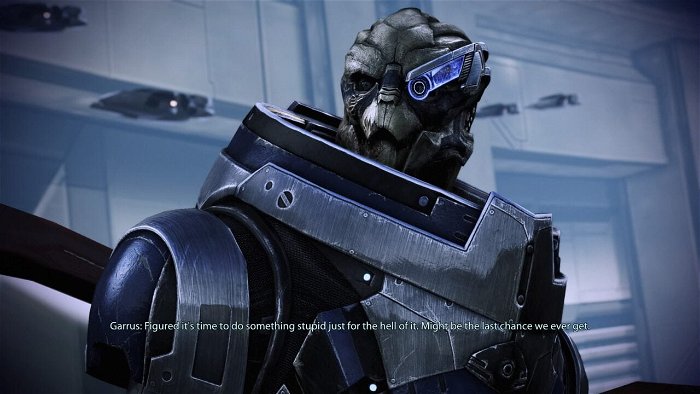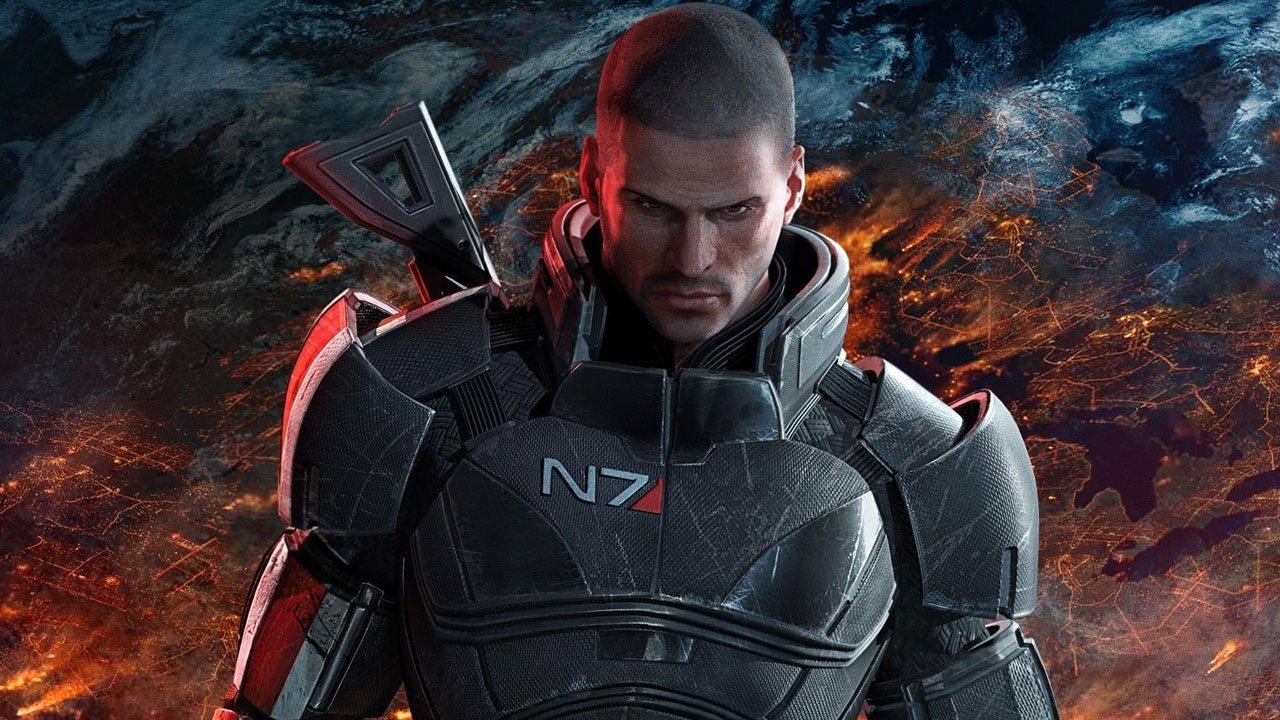Sometimes it’s easier to appreciate good things in retrospect. This can certainly be the case with art and entertainment like books, films, and videogames. Though a given game may be pretty great on its own merits, the headspace that a player is in when s/he first encounters it can negatively colour the entire experience. Someone who’s fed-up with first-person shooters as a whole will likely find even the most innovative take on the genre boring. A player in the mood for a fast-paced action game won’t get much out of Gone Home’s deliberately paced narrative or the slow-burn survival gameplay of The Last of Us. Where we’re at when we interact with a game for the first time dictates an awful lot about whether or not we’re able to appreciate it. Revisiting the original Mass Effect over the past few weeks has made this phenomenon very clear to me.
“Where we’re at when we interact with a game for the first time dictates an awful lot about how much we’re able to appreciate it.”
Mass Effect was first released in 2007, but it wasn’t until a few years later that I had a chance to play it. I had finally bought a decent computer—one capable of running BioWare’s science-fiction themed RPG—and was excited to finally check the game out after hearing effusive praise for its story and world-building for quite some time. I definitely wasn’t unimpressed with Mass Effect after spending some time with it, but the game I found didn’t match up to the expectations I’d built up for it. Sure, this was partially the fault of a handful of articles that were maybe a bit too enthusiastic with their recommendations—an understandable side effect of a mainstream game release that does something new—yet it was also, I think, a more personal reaction.
I was expecting to get sucked into a world that felt truly alien, full of bizarre species my version of Commander Shepard could form real, three-dimensional relationships with. I hoped for a science-fiction story that would force me to think about grandiose themes like the enormity of the cosmos and humanity’s relative insignificance in time and space. Basically, even though the game touches on these elements as part of its larger intent, I wanted to get something out of Mass Effect that it wasn’t trying to accomplish.

Still, I went on to play the game’s sequels—Mass Effect 2 and 3—closer to their 2010 and 2012 releases and, for the most part, very much enjoyed them. I looked back on the first entry to the trilogy as an intriguing, but flawed template for the rest of the series. Now, a few years on from the conclusion of BioWare’s trio of sci-fi games, I returned to Mass Effect and found that I like it a whole lot more than I did back when I first played through it. It’s hard to pin down why exactly.
I imagine it has a lot to do with expectations and the revised mindset that can come from lowering them to a realistic standard. Knowing what I was getting into with a return to Mass Effect—knowing what kind of game it is and where its strengths and limitations lie—allowed me to better appreciate it for what it is. I knew that there were only a handful of characters for Shepard to relate to on a deeper level than one-off conversations; I was aware that the combat system was less third-person shooter than tactical role-player; I was expecting the story to be a space opera with only limited exploration of heavy existential concepts. In short, I like playing the game more now than I did before.
Discovering that we have a greater appreciation for a work upon revisiting it is probably a pretty common experience. How we judge any kind of media is inherently personal and so dependent on the nearly infinite minor joys and irritations that colour daily life, it’s a wonder people’s opinions ever line up. It’s worth keeping this in mind when encountering a game that disappoints despite months of pre-release hype. It’s also a good thing to remember after dismissing a work of art or entertainment because of a poor first impression. Barring the kind of deep, fundamental issues that can make a game completely irredeemable—offensive or problematic content, say, or outright bad design—there’s often something positive to discover in a title that was previously dismissed. This obviously can’t be the case in every instance, but taking the time to see if there’s more to apparently disappointing games than first appeared can definitely be worthwhile.




